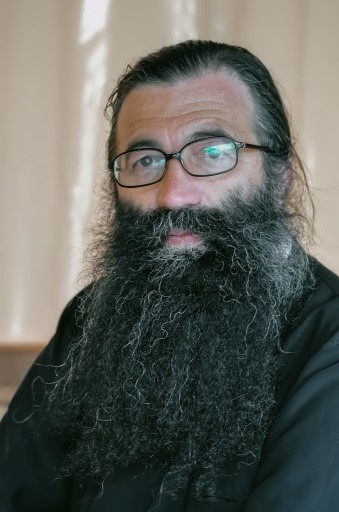By Larry Short, Community Ministry Director
This is part six in a seven-part series on principles guiding community life at Elim. To read all seven principles in one document, click here.

I experienced something of an epiphany 20 years ago, when I traveled to Romania with a group of nine other World Vision staff on what was essentially a staff vision trip. There, high in the mountains above Bucharest, we spent the day in a community called Valea Plopului. This was no ordinary community. It was centered around the life and work of an Orthodox priest named Father Nicolae Tanase.
Fr. Tanase became a priest at a time when it was very difficult and unpopular to do so. Back in the 1970s and ‘80s, Communists, under the iron fist of a brutal dictator named Nicolae Ceauşescu, were in charge. They believed there was no God in Heaven and human children were nothing other than a commodity to be exploited for the purposes of the State. They encouraged people to have lots of children and made any kind of birth control illegal, and when parents could not afford to raise their children, the kids became wards of the state, where they were to be indoctrinated in Communist ways.
That was the vision, at any rate. The reality was that children were half-starved, and many were diseased and disabled. They were treated like cattle and often left to die, caged like animals in “cribs” with steel bars.
Because of this reality, abortion was rampant. This young, brave priest named Father Tanase, convinced that God was alive and wanted him to show compassion to suffering children, announced that unwanted children could instead be brought to his village in the mountains, where they would be adopted by loving parents and raised with the dignity of human beings created in the image of God.
This announcement didn’t sit kindly with the Communists. They attempted secretly to kill Fr. Tanase, but only succeeded in maiming him. (His huge, black beard covers most of the grisly scars of this event some 30 years ago.)
After Ceauşescu was deposed in 1990 and the Communists fell from power, Fr. Tanase accelerated his efforts. When we visited in 1997, dozens of children had been adopted by community members. They tended sheep and gardens, running hither and yon with joy through the hills. They were well-fed, healthy, and happy. And they knew Jesus loved them! The image that remained with me from that day is best characterized by the somewhat odd title: “Peter Pan goes to Sunday School.”
What does this have to do with community groups? As I reflected on what Father Tanase had done in Valea Plopului, it occurred to me that he hadn’t done it alone. He had a group of vibrant believers around him who were willing to sacrifice enormously to show the compassion of Christ to a hurting world. What an incredible testimony!
Elim has gotten small toeholds on this principle, through amazing efforts such as Freezing Nights, feeding the hungry at the Puyallup Armory, and more recently, our wonderful involvement in foster care ministry. But I believe God has far more in store for us.
And if compassionate outreach to the community and world around us is going to be effective and sustainable, I believe it will find itself envisioned and resourced from within the center of our community groups. Hence, principle six of our seven principles:
- The Community Ministry will seek to strategically equip and encourage groups not simply to be places of community and fellowship, but also to be the point of the spear for our church reaching out into the community and world around us. This will look very different for different groups at different times, but we will challenge each group leader to be interacting with his or her members with outward-reaching ministry in mind. We will ask them, “What is God placing upon your heart(s) to do to impact the world around us for Jesus?” We will encourage them to listen to God and work toward whatever vision He plants in their hearts. Perhaps not every group will be reaching out, but it should be an important value to do so and to support those groups that do.
I would like to encourage everyone in a Community Group to pray about a vision that God would implant for becoming His hands and feet to the community and world around us. This won’t look the same for every group. Some may focus on supporting foreign missionaries, and others may focus on feeding the hungry right here in our community. Some will have a heart for strategic evangelism initiatives, and others may have heart for supporting efforts to help children in our community and beyond. Who knows what God will do?
But I do know He wants us to do something. I look at Father Tanase and praise God for the way James 1:27 is being worked out in his small corner of the world:
Religion that is pure and undefiled before God the Father is this: to visit orphans and widows in their affliction, and to keep oneself unstained from the world.
What will God accomplish through you and your group? Start praying NOW, and only time will tell!
P.S.: Where is Father Tanase’s ministry, 20 years later? The video below will blow your mind. I mentioned that when we were there, dozens of children were being cared for. Now that number is in the hundreds!
Views – 216

 Follow
Follow